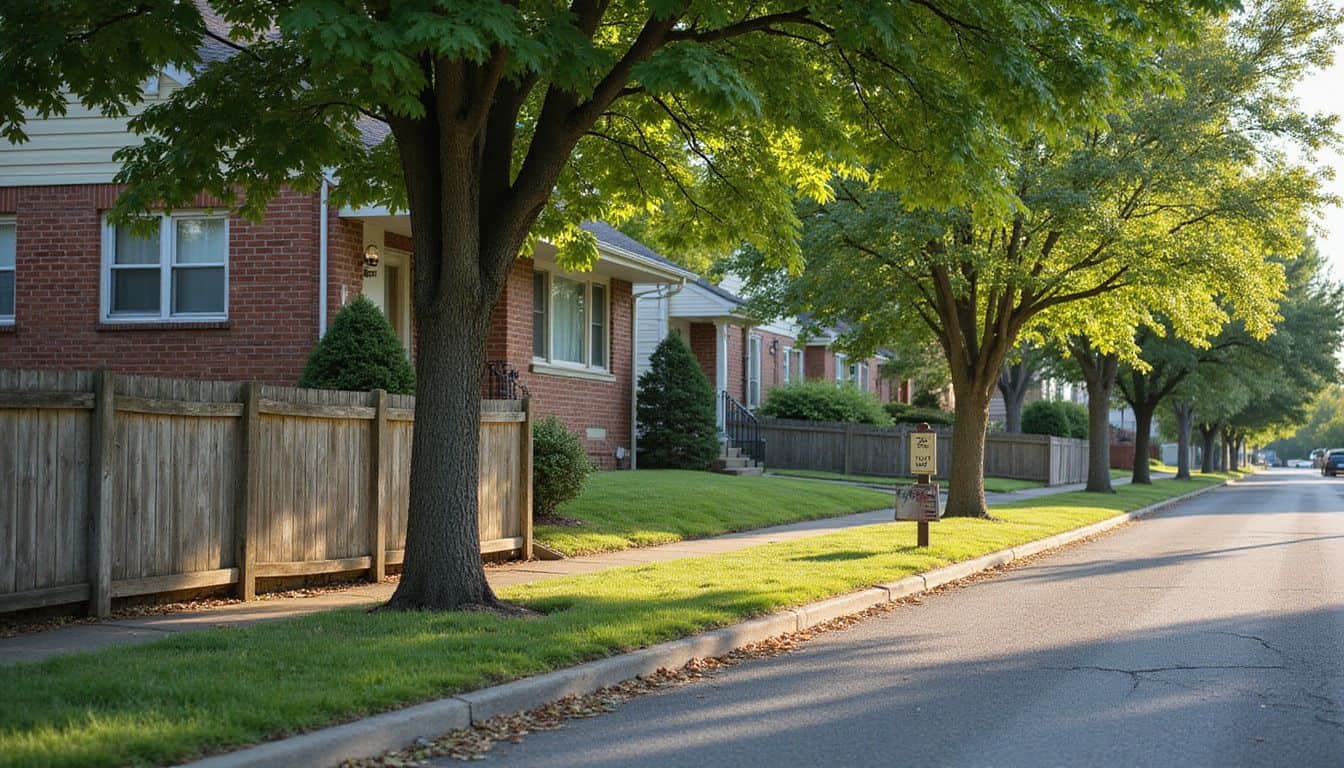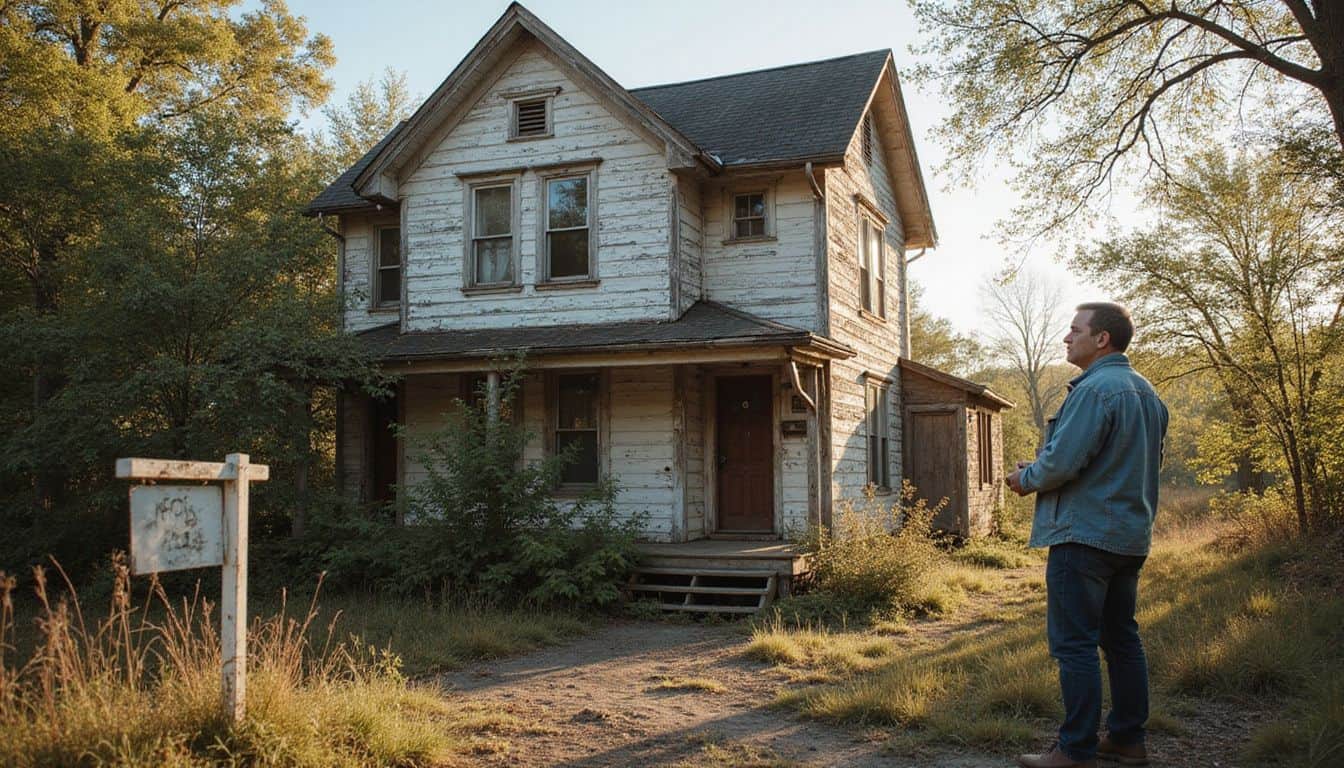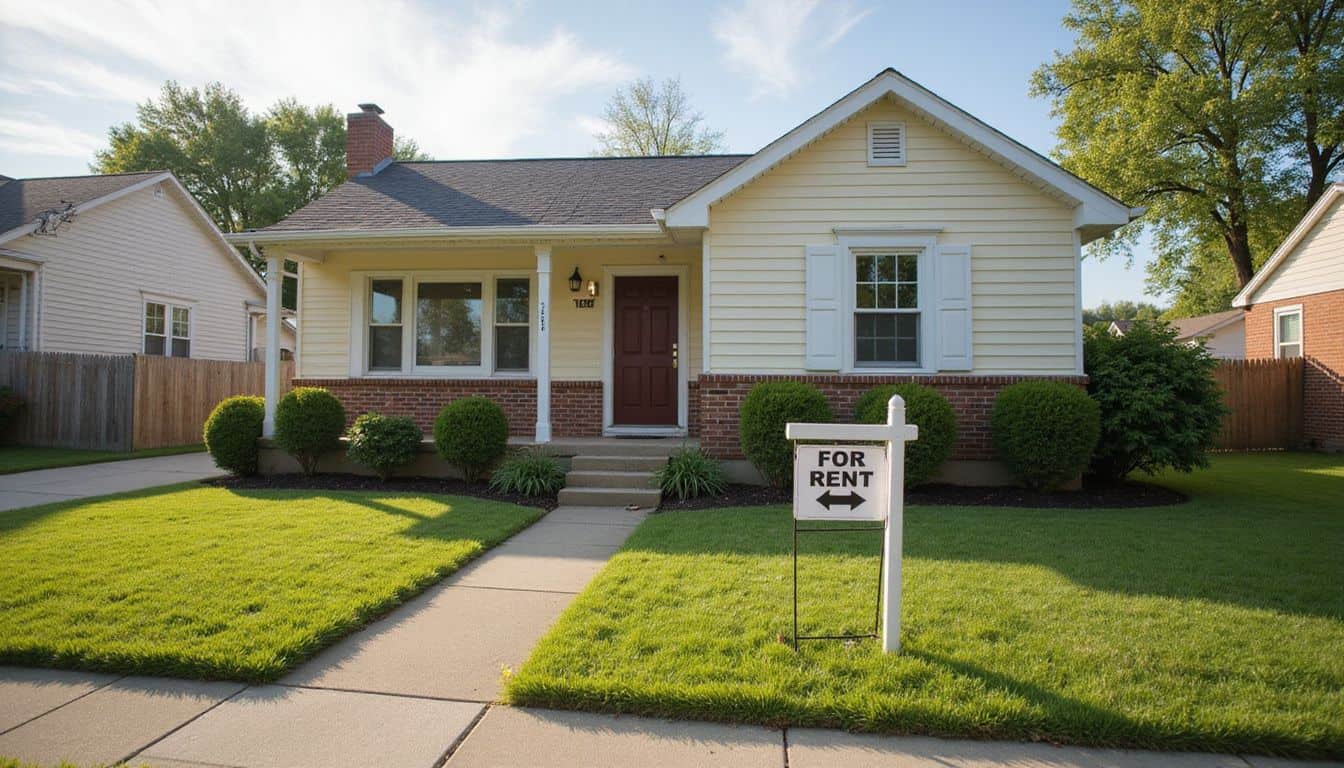Many people think they need thousands of dollars to start real estate investing, but that’s not always true. You can actually learn how to buy a rental property with no money down through proven strategies that successful investors use every day.
This guide reveals 13 practical methods that help you enter the real estate market without draining your savings account, from house hacking to creative financing options. Ready to build your property portfolio without breaking the bank?
Key Takeaways
Real estate investors can buy rental properties with no money down using creative financing strategies like house hacking, seller financing, and partnerships.
House hacking allows investors to live in one unit while renting others, often eliminating housing costs through tenant payments.
Hard money lenders provide quick financing at 7-15% interest rates based on property value rather than credit history.
Government programs like FHA loans require only 3.5% down payment, while VA loans may require no down payment for veterans.
The BRRRR method lets investors buy, rehab, rent, refinance, and repeat to build portfolios without repeatedly using personal cash.
Table of Contents
Is It Possible to Buy a Rental Property With No Money?

Yes, you can buy a rental property with no money down. Real estate investors use creative financing strategies to minimize personal cash input while maximizing return on investment.
Traditional property purchases typically require a 20% down payment, but smart investors find ways around this barrier.
Leveraging other people’s money (OPM) is a primary strategy for funding real estate investments. I’ve seen countless investors build impressive real estate portfolios without touching their savings accounts.
House hacking, seller financing, and partnerships allow you to get started with minimal upfront costs. Local banks often offer more flexible financing options compared to larger banks, making it easier to secure funding for your first investment property.
The best investment on earth is earth. – Louis Glickman
Success requires thorough market research, financial planning, and due diligence. Your credit score plays a crucial role in securing favorable interest rates and loan terms. A skilled property manager in Houston can help maximize your rental income once you acquire the property.
These strategies work best for serious real estate entrepreneurs who understand the risks and rewards of property investment.
Strategies to Purchase Rental Properties Without Upfront Cash

Getting into rental property investing doesn’t require a massive pile of cash sitting in your bank account. Smart investors use creative financing methods, partnerships, and alternative loan programs to build their real estate portfolio without traditional down payments.
What Is House Hacking and How Does It Work?

House hacking turns your home into a money-making machine. You buy a duplex, triplex, or fourplex, live in one unit, and rent the others to cover mortgage payments. This strategy works with single-family homes too.
You can rent out additional rooms within your primary residence to generate rental income. The key is living in the property while collecting rent from tenants. FHA loans require 3.5% down with good credit, making this approach accessible for many investors.
VA loans may require no down payment for qualified veterans. Your tenants essentially pay your mortgage while you build equity in the property.
Multi-family house hacking involves purchasing a multi-family property and renting out the other units. I’ve seen investors completely eliminate their housing costs this way. The rental income often covers the entire mortgage payment, property taxes, and basic maintenance expenses.
You get to live for free while building your real estate portfolio. Single-family house hacking works differently but offers similar benefits. You rent out spare bedrooms, basement apartments, or converted spaces.
This passive income strategy helps new investors enter the real estate market without large down payments. Your creditworthiness and property value determine how much you can borrow from mortgage lenders.
How Can Seller Financing Help Me Buy a Rental Property?

Seller financing lets you buy rental properties without traditional bank loans. The seller acts as the lender, negotiating repayment terms directly with you. This approach cuts out banks completely, making deals faster and more flexible.
You can purchase a $400k duplex with 100% seller financing at 10% interest. The seller gets steady income while you gain property ownership without a massive down payment.
You pay the seller interest-only payments while earning rental income from tenants. This strategy works best when sellers own their property outright, giving you more favorable terms.
After 5 years, you can refinance into a traditional loan and pay off the seller. The faster closing process bypasses bank financing requirements, letting you close deals in weeks instead of months.
Hard money lenders offer another financing option for investors seeking quick property acquisitions.
What Are Assumable Mortgages and How Do They Work?

While seller financing lets you work directly with property owners, assumable mortgages offer another path to bypass traditional lending. You can assume the seller’s mortgage, subject to lender approval, which means you take over their existing loan payments and terms.
This strategy works best when the seller’s loan terms beat current market rates. Common types of assumable mortgages include FHA, VA, USDA loans, and certain jumbo loans. I’ve seen investors save thousands on closing costs using this method.
The pros for rental investors include lower monthly payments, reduced closing costs, and shorter loan durations. Keep in mind that potential upfront capital requirements and stringent qualification necessities can create hurdles.
Occupancy requirements may limit the use of the property as a rental in some cases, so check the loan terms carefully before moving forward.
The best real estate deals are often the ones where you can step into someone else’s shoes and walk away with their favorable terms.
How Do Hard Money Loans Finance Rental Properties?

Unlike assumable mortgages that transfer existing loans, hard money loans offer a completely different financing approach for rental properties. These short-term, high-interest loans come from private lenders who base their decisions on property value rather than your credit history.
Hard money lenders focus on the investment property itself as collateral, making approvals lightning-fast. Interest rates typically range from 7% to 15%, with repayment periods spanning 6 months to 3 years.
Most lenders evaluate the loan-to-value ratio, usually setting it between 60% to 80% of the property’s worth. Approvals often happen within days, giving you the speed needed to make competitive property bids in hot real estate markets.
This financing method works especially well for house flipping projects where you need quick cash to secure deals and renovate properties for rental income.
Who Are Private Money Lenders and How Can They Help?

Private money lenders are individuals who provide funding for real estate investments outside traditional banking systems. These lenders typically focus on individuals rather than institutional banks, making them more flexible with their lending criteria.
They base loans on the property’s income-generating potential over credit history, which helps investors with less-than-perfect credit scores. Trust and credibility are crucial in attracting private funding, so building relationships becomes essential for success.
Many private lenders offer personalized terms that banks simply cannot match, creating opportunities for creative financing solutions.
Interest rates for gap funding range from 8-15% annually, making private money more expensive than conventional mortgages but faster to obtain. Negotiating terms directly with private lenders emphasizes the property’s potential profitability rather than strict qualification requirements.
These lenders provide flexible financing options with personalized terms that can include interest-only payments or balloon payments. Private funding can help you secure rental properties quickly in competitive markets where speed matters most.
The direct relationship allows for customized loan structures that fit your specific investment strategy, whether you’re using the BRRRR method or pursuing house hacking opportunities.
How Do Partnerships Facilitate Buying Rental Properties?

Partnerships make real estate investing accessible for investors with limited capital. You can partner with friends, family, or business partners to share capital, risks, and responsibilities across multiple investment properties.
Legal agreements in partnerships help define responsibilities and profit-sharing arrangements before any transactions begin. Co-borrowing enables investors to pool resources and manage mortgage payments collectively, reducing individual financial strain.
Effective communication and collaboration in partnerships are essential for successful real estate investments. Partnerships can lead to quicker portfolio expansion by leveraging combined capital from multiple sources.
Connecting with high-net-worth individuals opens doors to larger investment opportunities that single investors cannot access alone.
Clearly define loan terms, roles, and refinancing processes to avoid conflicts later. I’ve seen partnerships work best when each person brings different strengths to the table, whether that’s capital, property management skills, or market knowledge.
Real estate partnerships multiply your buying power while dividing your risk.
What Are Rent-to-Own Agreements and Are They Effective?

Beyond partnerships, rent-to-own agreements offer another path to acquire rental properties with limited upfront capital. These contracts let you rent with the intent to purchase, with some rent credited toward the purchase price.
Property owners cover taxes and insurance, which reduces your upfront costs significantly.
Two main types exist: lease-option contracts give you the optional right to purchase, while lease-purchase agreements make buying mandatory. You’ll pay an upfront option fee, usually 2% to 7% of the property’s value, to secure your purchase right.
Monthly rent payments may contribute to your future down payment. This strategy works best for investors lacking immediate down payment funds or those needing time to improve their credit scores.
Which Government Programs Assist in Buying Rental Properties?

While rent-to-own agreements offer one path to property ownership, government programs provide another powerful route for acquiring rental properties with minimal upfront costs. The Federal Housing Administration backs FHA loans that allow qualified buyers to purchase properties with as little as 3.5% down payment.
Veterans can tap into VA loans that may require no down payment at all, making real estate investing more accessible for those who served. USDA loans present another opportunity for qualified buyers to purchase properties with little to no upfront capital, particularly in rural areas.
Government-backed loan programs create lower financial barriers for investors looking to build their real estate portfolio. These federal programs assist investors in acquiring rental properties without the traditional 20% down payment requirement.
VA loans stand out as especially attractive since they eliminate the down payment entirely for eligible veterans. FHA loans bridge the gap for civilian investors who want to start with minimal cash.
Smart investors often combine these programs with other real estate strategies to enhance their investment power and maximize their return on investment.
How Can a Home Equity Line of Credit (HELOC) Be Used?

Government programs offer solid starting points, but your existing home equity opens another powerful door. A home equity line of credit (HELOC) lets you tap into your property’s value to fund rental property purchases.
Your home equity equals market value minus mortgage owed. This creates a flexible funding source that many investors overlook.
Picture using a $100k HELOC at 8.5% interest to buy a $100k rental property outright. HELOCs typically offer a draw period of 5 to 10 years with interest-only payments. This structure gives you breathing room to generate rental income before tackling principal payments.
You can then use rental income to refinance and repay the HELOC, creating a cycle of property acquisition. HELOCs provide lower closing costs and greater payment flexibility compared to cash-out refinances.
The flexible access to funds and lower rates compared to unsecured loans make HELOCs attractive for real estate investing. I’ve seen investors use this strategy to build substantial real estate portfolios without touching their savings accounts.
A HELOC is like having a credit card backed by your home’s equity, but with much better terms and lower interest rates for investment purposes.
What Is the BRRRR Method and How Does It Work?

The BRRRR method stands for Buy, Rehab, Rent, Refinance, Repeat. This real estate investing strategy helps investors build a rental property portfolio without using their own cash repeatedly.
You start by purchasing a fixer-upper property at a discounted price, then renovate it to increase its value. After improvements, you rent the property to generate rental income, then refinance based on the new higher property value to pull out your initial investment.
Here’s how it works in practice: You buy a fixer-upper for $150,000, spend money on renovations, then rent it for $2,000 per month. Once renovated, the property appraises at $250,000, allowing you to refinance and pull out most of your original investment.
This cash-out refinance gives you funds to repeat the process on another investment property. The strategy requires patience since renovation projects can be time-consuming, and you face financial risks at each stage.
Smart investors use various financing options like hard money lenders, private money lenders, or home equity lines of credit to fund their initial purchases and renovations.
Creative Financing Options for Rental Property Purchases

Beyond traditional financing methods, creative real estate strategies open doors for investors who lack substantial cash reserves. These alternative approaches can help you build your rental property portfolio without draining your savings account or waiting years to accumulate a large down payment.
What Is Wholesaling Real Estate and How Can I Use It?

Wholesaling real estate involves contracting a property with a seller and selling that contract to a buyer. This strategy lets you assign or sell contracts to investors for a fee without upfront capital.
You find distressed properties, negotiate purchase agreements with sellers, then locate buyers willing to pay more for the contract. The difference becomes your profit, and you never actually own the property.
Your purchase agreement with the seller must allow for the assignment of the contract to make this work legally.
Getting started requires building a network of investors who buy properties regularly. You’ll spend time researching potential properties and evaluating them for profit potential. Marketing to sellers becomes crucial since you need motivated property owners willing to sell below market value.
Key steps include finding distressed properties, negotiating favorable contracts, and connecting with cash buyers who close quickly. I’ve seen investors make $5,000 to $15,000 per deal using this method, though success depends on your ability to find good deals and maintain strong investor relationships.
How Can I Use Credit Cards Strategically to Fund Investments?

Credit cards can serve as powerful tools for real estate investment when used correctly. Smart investors take advantage of 0% APR credit cards to fund property purchases without paying interest charges during promotional periods.
These cards provide immediate access to capital that can help secure deals quickly in competitive markets. Cash advances from credit cards offer another funding option, though they typically come with higher interest rates and fees.
Successful investors pay their credit card bills on time to avoid costly interest charges and maintain strong credit scores for future investments.
Strategic credit card use extends beyond simple cash advances to include earning rewards and cash back on investment-related purchases. Many cards offer points or cash back that investors can apply toward property viewing travel costs, renovation supplies, or other investment expenses.
Credit card points can offset significant costs when accumulated over time through regular business purchases. Investors must understand credit card terms completely to avoid high-interest rates and hidden fees that can destroy profits.
The key lies in treating credit cards as short-term financing tools rather than long-term debt instruments, ensuring quick payoff to maximize the benefits while minimizing risks.
What Are Gap Lenders and How Do They Help?

Credit cards offer one financing path, but gap lenders provide another powerful option for real estate investors. These specialized lenders fill the space between your available funds and the total purchase price of an investment property.
Gap funding delivers short-term financing that covers 10-30% of a property’s purchase price. Interest rates typically range from 8-15% annually, with loan terms spanning 6 months to 5 years.
Banks, private lenders, and crowdfunding platforms specializing in real estate serve as reliable sources for this type of financing. Most gap lenders require a minimum down payment of 20-25%, a credit score above 650, and a debt-to-income ratio below 40%.
Smart investors combine gap funding with traditional financing to boost their return on investment while securing rental properties with minimal upfront cash.
What Are the Benefits and Risks of Buying Rental Properties With No Money?

Purchasing rental properties without an initial down payment can generate substantial wealth through passive income and property value increases, but it also results in higher monthly payments and increased financial risk.
Savvy investors carefully consider these trade-offs, as the potential for greater returns often requires accepting more leverage and stricter cash flow requirements.
What Are the Potential Benefits of No-Money-Down Purchases?

No-money-down rental property purchases offer compelling advantages for investors who want to build wealth without large cash reserves. These strategies allow you to start your real estate portfolio while keeping your savings intact.
- Preserve Cash for Multiple Deals: Low initial investment required for purchasing properties means you can spread your money across several rental properties instead of putting everything into one. This approach helps you diversify your real estate portfolio faster than traditional methods.
- Amplify Returns Through Leverage: Potentially higher returns due to leverage occur because you control expensive assets with minimal upfront capital. Your return on investment (roi) increases significantly since you’re earning rental income on the full property value, not just your small investment.
- Generate Immediate Cash Flow: Rental income starts flowing right after you close on the property, giving you monthly passive income. Many investors see positive cash flow from day one, especially with house hacking strategies where tenants help cover mortgage payments.
- Build Equity Without Large Down Payments: Tenants pay down your mortgage principal each month, building your equity automatically. This wealth-building happens while you focus on finding your next investment property or managing your growing real estate portfolio.
- Access Tax Advantages Immediately: Real estate investing provides depreciation deductions, mortgage interest write-offs, and other tax benefits from your first rental property. These advantages start working for you even with seller financing or owner financing deals.
- Scale Your Portfolio Quickly: Reduced financial strain for investors with limited cash reserves means you can acquire multiple properties in shorter timeframes. Smart investors often use the BRRRR method to recycle their capital into new deals continuously.
- Maintain Financial Flexibility: Keeping your cash reserves intact provides security for unexpected expenses or market opportunities. You can handle property management costs, repairs, or even pursue how to spot stealth wealth strategies while your properties generate income.
- Enter Markets During High Mortgage Rates: Creative financing options like assumable mortgages or private money lenders help you bypass current mortgage rates. This flexibility keeps you active in the real estate market regardless of economic conditions.
What Risks Should I Consider When Buying Rental Properties?
Purchasing rental properties without a down payment creates significant financial risks that can negatively impact your investment returns. These risks affect your cash flow, property value, and long-term wealth building goals.
- Negative cash flow impacts your monthly budget – Higher debt payments from deals without down payments often exceed rental income, requiring you to cover shortfalls from your personal funds each month.
- Tenant issues increase your financial stress – Problematic tenants who damage property or miss rent payments are more challenging when you already carry maximum debt loads and limited cash reserves.
- Higher interest rates reduce profits – Alternative lenders charge premium rates that decrease your return on investment compared to traditional financing.
- Property value declines result in negative equity – Market downturns can push your property value below your mortgage balance, leaving you in a difficult investment situation.
- Limited property choices restrict your options – Alternative financing deals are uncommon, forcing you to accept properties that may not align with your investment criteria.
- Default risks increase with complex financing – Multiple loans, credit card debt, and non-traditional financing structures raise your chances of missing payments and potentially losing the property.
- Legal complexities use your resources – Potential clause violations, contract disputes, and financing agreements require costly legal assistance that reduces your profits.
- Tax implications catch unprepared investors – Non-traditional financing strategies can trigger unexpected tax consequences that may result in penalties and additional payments.
- Dependence on financing affects your control – Relying on alternative loans or private lenders means others influence your investment timeline and exit strategies.
- Higher debt ratios limit future deals – Excessive borrowing reduces your ability to qualify for additional investment property loans and grow your real estate portfolio.
How Will No-Money-Down Rental Property Strategies Evolve in 2025?

Real estate investing strategies will change significantly in 2025, with technology making no-money-down deals more accessible. Digital platforms now connect private money lenders directly with investors, reducing costs.
Artificial intelligence helps analyze property values faster, while blockchain technology simplifies seller financing agreements. Government programs will expand to include more flexible FHA loans for investment properties, and new legislation may ease restrictions on assumable mortgages.
Hard money lenders are already developing faster approval processes, with some offering decisions within 24 hours. The BRRRR method will become more common as refinancing options increase, and house hacking opportunities will grow in suburban markets where property management costs remain low.
Creative financing will become prevalent in the rental property market as traditional banks tighten lending standards. Home equity lines of credit (HELOCs) will offer lower interest rates, making them attractive alternatives to personal loans.
Rent to own agreements will gain legal protection in more states, giving investors safer exit strategies. Partnership structures will develop beyond simple co-ownership, with sophisticated profit-sharing models that protect all parties.
Investors have successfully used credit cards for short-term bridge financing, then quickly refinanced through cash-out refinancing once the property generates rental income. Owner financing deals will include built-in escalation clauses that adjust interest rates based on market conditions.
Gap lenders will fill the space between hard money loans and permanent financing, creating smoother transitions for real estate portfolios. These changes will make passive income through rental properties achievable for investors with limited capital but strong financial planning skills.
People Also Ask
Can you really buy rental property with no money down?
Yes, you can buy rental property with no money down using several real estate strategies. FHA loans, seller financing, and the BRRRR method let you start real estate investing without a traditional down payment. These approaches help you build a real estate portfolio even with limited capital investment.
What is house hacking and how does it work?
House hacking means buying an owner-occupied property and renting out parts of it to generate rental income. You live in one unit while tenants pay rent that covers your mortgage and utilities. This strategy creates passive income while you build property value.
How does seller financing help with no money down deals?
Seller financing lets the property owner act as the bank, eliminating the need for traditional home loans. The landlord receives monthly payments instead of a lump sum, while you avoid down payment requirements. This method works well when sellers want steady income or face a slow real estate market.
What is the BRRRR method in real estate investing?
BRRRR stands for buy, rehab, rent, refinance, repeat. You purchase a property, fix it up, rent it out, then do a cash-out refinance to pull out your money. This lets you repeat the process and grow your investment property portfolio.
Can I use a HELOC to buy rental properties?
A home equity line of credit (HELOC) lets you borrow against your home’s equity to fund real estate investment deals. You can use this money as a down payment or buy properties outright, then refinance later. This strategy works well for experienced investors with good credit.
What are the risks of using hard money lenders or private money lenders?
Hard money lenders and private money lenders charge higher interest rates than traditional banks, which hurts your return on investment (ROI). These types of loans often have short terms and strict due-on-sale clauses. You need solid property management skills and exit strategies to avoid losing money.
References
https://www.baymgmtgroup.com/blog/how-to-buy-a-rental-property-with-no-money-beginners-tips/ (2024-06-10)
https://themortgagereports.com/59359/invest-in-real-estate-with-little-or-no-money-down
https://www.treadstonemortgage.com/blog/guide-to-house-hacking/
https://www.renterswarehouse.com/education/a-rental-investors-guide-to-assumable-mortgages
https://www.nerdwallet.com/article/mortgages/assumable-mortgage
https://www.offermarket.us/blog/hard-money-lenders-for-rental-properties (2025-03-12)
https://www.realestateskills.com/blog/how-to-buy-a-rental-property-with-no-money (2025-02-25)
https://asapcashhomebuyers.com/how-do-i-buy-investment-properties-with-no-money-a-proven-guide/ (2024-07-25)
https://www.investopedia.com/updates/rent-to-own-homes/
https://efundercapital.com/how-to-buy-rental-property-with-no-money-down-in-pittsburgh/
https://newomnibank.com/using-a-heloc-to-fund-investment-property/
https://pce.sandiego.edu/brrrr-method/
https://www.chase.com/personal/mortgage/education/buying-a-home/brrrr-method
https://www.lendingtree.com/home/mortgage/what-is-real-estate-wholesaling/
https://www.realestateskills.com/blog/wholesaling-rental-properties (2025-02-19)
https://www.businessinsider.com/real-estate-investing-using-credit-cards-to-buy-homes-risks-2023-7 (2023-07-19)
https://www.biggerpockets.com/blog/creative-financing
https://www.leasey.ai/resources/gap-funding-explained-rental-investors/ (2025-06-14)
https://www.eatonrealty.com/blog/property-management/how-buy-rental-property-no-money-down-florida
https://rentprep.com/blog/real-estate/how-to-buy-a-rental-property-with-no-money/

